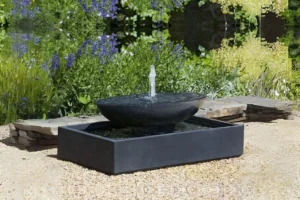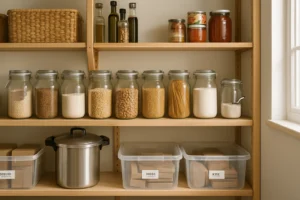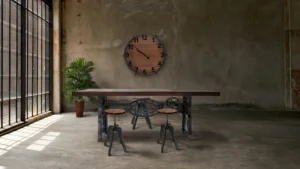I never thought I’d be writing an entire blog post about frozen eggs, but here we are. A sudden cold snap on the farm a few winters ago turned dozens of eggs solid overnight. At first, I panicked—were they ruined? Could they still be eaten? After a little experimenting (and some trial-and-error in the kitchen), I discovered that frozen eggs aren’t just edible—they can be turned into seriously delicious meals.
So if you’ve ever opened your fridge or barn only to find your eggs turned rock hard, don’t throw them out just yet. In this post, I’ll share what I learned, how to safely thaw them, and some recipes that prove frozen eggs are still worth their weight in gold.
Can You Eat Frozen Eggs?
The first question that popped into my head: can you eat frozen eggs?
The short answer is yes—if they’re uncracked. Frozen eggs that remain intact in the shell are still safe. You’ll want to thaw them before using, but they cook up just fine.
If the eggs cracked during freezing, though, toss them. The cracks allow bacteria in, and no recipe is worth the food safety risk. I made that mistake once, and the smell was enough to convince me never to try again.
So, the rule of thumb is simple:
- Uncracked frozen eggs = safe to use.
- Cracked frozen eggs = compost or trash.
How to Thaw Frozen Eggs
The next challenge was figuring out how to thaw frozen eggs without ruining them. My biggest piece of advice? Patience.
Here’s what works best:
- Place the frozen eggs in the fridge.
- Let them thaw slowly over 12–24 hours.
- Use immediately once thawed.
Do not—repeat, do not—leave them on the counter to thaw quickly. Bacteria thrive at room temperature, and you don’t want that in your breakfast.
One thing to note: after thawing, the yolks can be a little thicker or gel-like. This makes them less ideal for delicate recipes like meringues or soufflés, but for scrambles, baked goods, or quiche, they’re perfect.
Cooking with Frozen Eggs
When it comes to cooking with frozen eggs, the possibilities are endless. The slightly altered texture after thawing doesn’t affect most recipes at all.
Here are my favorite ways to use them:
- Scrambled eggs and omelets (works perfectly)
- Baking—cookies, muffins, quick breads
- Savory dishes like casseroles or frittatas
- And, of course, quiche (my personal favorite)
Honestly, if you don’t tell anyone the eggs were frozen, they’d never know. The only thing I avoid is whipping egg whites for stiff peaks—you’ll never get the volume you need.
Easy Quiche Recipe with Frozen Eggs
Now for the fun part. Let’s talk about an easy quiche recipe that saved me during that unexpected cold spell. I had a mountain of frozen eggs and a fridge full of odds and ends. Quiche turned out to be the perfect way to use them up.
Ingredients:
- 6 thawed eggs
- ½ cup milk or cream
- ½ pound bacon
- 1 small onion, chopped
- ½ cup green pepper, chopped
- 1 cup broccoli, chopped
- 1 cup shredded cheese (cheddar or Swiss)
- 1 pie crust
- Salt and pepper
Steps:
- Preheat oven to 350°F.
- Bake the pie crust for 5 minutes, then let it cool.
- In a skillet, cook bacon until crispy. Remove, but save a bit of the grease.
- Sauté onion and green pepper in the bacon fat. Add broccoli and cook until just tender.
- Whisk eggs with milk, salt, and pepper.
- Mix in veggies, bacon, and cheese.
- Pour everything into the crust.
- Bake for about 45 minutes, or until set in the center.
The result? A hearty, comforting dish that made me forget I was even dealing with frozen eggs.
Pie Crust Quiche: Why It’s a Winner
There’s something about a pie crust quiche that feels like comfort food at its best. The flaky crust paired with a creamy egg filling is the perfect balance of texture and flavor.
What I love most is how forgiving it is. Don’t have broccoli? Use spinach. Out of bacon? Try ham or even roasted veggies. Quiche welcomes substitutions, and frozen eggs blend right in.
It’s also a meal-prepper’s dream. Bake one on Sunday, and you’ve got breakfasts or lunches ready for several days.
Cast Iron Skillet Recipes with Frozen Eggs
If you don’t feel like fussing with crust, cast iron is your best friend. Some of the best cast iron skillet recipes I’ve made involve frozen eggs.
Here’s a quick crustless quiche (basically a frittata):
- Oil your cast iron skillet generously.
- Pour in your whisked egg mixture with veggies, meat, and cheese.
- Bake at 350°F until golden and puffed.
The edges crisp up beautifully in cast iron, giving you that irresistible bite. And bonus—it’s all in one pan, which means fewer dishes.
Bacon and Egg Pie Using Frozen Eggs
Another dish I tried was a bacon and egg pie. Unlike quiche, where the eggs are beaten, this recipe uses whole eggs cracked directly into the crust. Layer in bacon, pour in a bit of cream, and top with more pastry.
When baked, the yolks stay creamy and the bacon adds a salty punch. Frozen eggs worked flawlessly here because any texture quirks disappear during baking.
This pie is hearty, rustic, and the kind of dish that feels like it was made to warm you up after a frosty day.
Tips I Learned About Frozen Eggs
After plenty of kitchen experiments, here are my best takeaways for dealing with frozen eggs:
- Label if freezing intentionally. Crack eggs into containers, label with the date, and use within a year.
- Cook, don’t refreeze. Once thawed, use them right away in a cooked dish.
- Skip recipes needing fluffy whites. They won’t whip as well after freezing.
- Think savory. Quiche, pies, casseroles, scrambles, and baked goods are all safe bets.
Final Thoughts on Frozen Eggs
What started as a cold-weather mishap turned into one of my favorite food discoveries. Frozen eggs aren’t wasted food—they’re an opportunity to get creative. From an easy quiche recipe in a pie crust, to hearty cast iron skillet recipes, to a rustic bacon and egg pie, the options are endless.
So next time your eggs freeze, don’t panic. Trust me—once you try cooking with them, you’ll realize they’re just another ingredient waiting for their moment to shine.
FAQs
Yes, you can eat frozen eggs if the shells are uncracked. If they cracked during freezing, it’s best to discard them for safety reasons.
The best way is to thaw them slowly in the refrigerator. This keeps them at a safe temperature and prevents bacterial growth.
Frozen eggs are perfect for quiche, casseroles, baked goods, and scrambles. Avoid using them for recipes like meringues that need fluffy egg whites.
No, once thawed, eggs should be cooked and used right away. Refreezing can affect both safety and texture.
Not really—when used in cooked dishes, most people won’t notice a difference. The texture may be slightly thicker, but flavor stays the same.
Yes! Crack eggs into a container, whisk lightly, and label with the date. They can be frozen for up to one year.
Absolutely. Cakes, muffins, breads, and pies all turn out well with thawed eggs. They blend easily into batter and hold their structure during baking.













